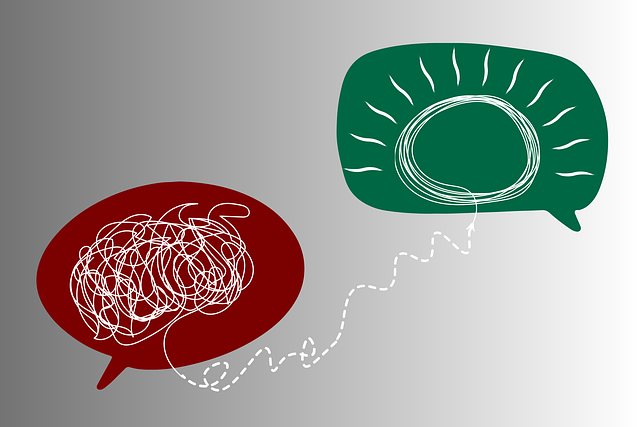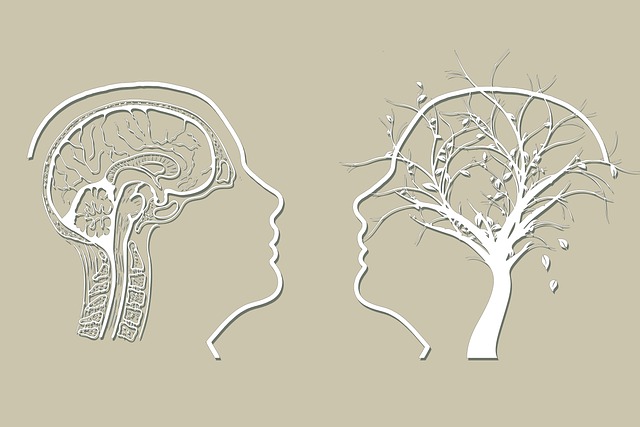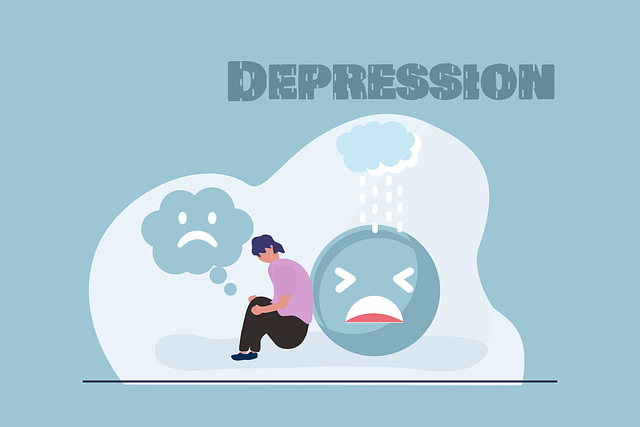Children's mental health, especially when coupled with chronic pain, presents a complex challenge that significantly impacts their emotional well-being and quality of life. Tailored therapy approaches considering developmental stages and cultural sensitivity are crucial. Digital self-assessment tools for mental wellness, evolved from traditional questionnaires, offer personalized feedback, coping strategies, and anonymized conversations, reducing Mental Illness Stigma. These tools, with interactive elements and age-appropriate language, make mental health assessment more accessible to children. They enable personalized therapy based on individual needs, transforming interventions and enhancing risk management for professionals through advanced journaling exercises and emotional intelligence assessments, potentially revolutionizing access to support for vulnerable populations. (Focus Keyword: Therapy for Children Chronic Pain)
Mental wellness self-assessment tools play a crucial role in identifying and addressing issues among children experiencing chronic pain. This article explores the development of such tools, focusing on understanding the unique mental health challenges faced by youngsters with chronic pain. We review existing assessment methods, discuss the importance of tailored interventions, and provide insights into creating effective tools for clinical practice. Additionally, we delve into implementation strategies, ongoing research, and future directions to enhance therapy for children suffering from chronic pain.
- Understanding Children's Mental Health and Chronic Pain
- Existing Self-Assessment Tools: A Review
- Developing Effective Assessment Tools for Young Patients
- Implementation, Research, and Future Directions
Understanding Children's Mental Health and Chronic Pain

Children’s mental health is a nuanced and complex landscape, particularly when intertwined with chronic pain. This often overlooked aspect of child development can significantly impact their emotional well-being and overall quality of life. Chronic pain in children may stem from various sources, including physical conditions, sensory processing disorders, or even trauma. Recognizing the unique challenges faced by these young individuals is paramount in developing effective mental wellness self-assessment tools.
The process of addressing therapy for children with chronic pain demands a tailored approach that considers their developmental stage and individual needs. Cultural sensitivity in mental healthcare practice plays a vital role here, as it ensures that assessment methods are inclusive and respectful of diverse cultural backgrounds. By fostering inner strength development through supportive therapeutic interventions, communication strategies can be implemented to help children express their experiences and emotions effectively.
Existing Self-Assessment Tools: A Review

A wide array of self-assessment tools exists to evaluate mental wellness, catering to diverse populations including children suffering from chronic pain. These tools have evolved beyond traditional questionnaires, incorporating interactive digital platforms that offer personalized feedback and recommendations for further support. Many focus on specific aspects of mental health, such as anxiety, depression, or stress management, providing valuable insights for both individuals and healthcare professionals.
Existing self-assessment tools also address broader mental wellness concerns, aligning with goals of Mental Health Policy Analysis and Advocacy. Some platforms are specifically designed to facilitate Mood Management techniques and promote coping strategies for those dealing with chronic conditions. Furthermore, many initiatives prioritize Mental Illness Stigma Reduction Efforts by encouraging open conversations around mental health through anonymized assessments and sensitive language.
Developing Effective Assessment Tools for Young Patients

Developing assessment tools tailored for young patients is a vital step in enhancing mental wellness support for this demographic. Many children and adolescents struggle with issues such as chronic pain, which can significantly impact their emotional well-being and daily lives. Traditional therapy methods may not always be effective or engaging for younger individuals, thus requiring innovative approaches to assessment and treatment.
Specialized self-assessment tools designed with kids in mind can offer a more accessible and appealing way to gauge mental health. These tools could incorporate interactive elements, visual aids, and age-appropriate language to encourage participation. For instance, assessing anxiety relief techniques or conflict resolution skills through engaging games or storytelling can provide valuable insights into a child’s emotional state while also offering practical coping strategies they can use in their daily lives, particularly during moments of crisis intervention.
Implementation, Research, and Future Directions

The development of self-assessment tools plays a pivotal role in enhancing mental wellness interventions, especially for vulnerable populations such as children suffering from chronic pain. As research continues to highlight the significance of early identification and intervention for mental health issues, these tools become essential resources for both professionals and individuals seeking support. By integrating self-assessment techniques into therapy for children with chronic pain, healthcare providers can facilitate a more personalized approach, tailored to each child’s unique needs and experiences.
Looking ahead, future directions in this field should focus on refining existing mental wellness journaling exercises and developing guidance for emotional intelligence assessment. These areas hold immense potential in improving risk management planning for mental health professionals, enabling them to offer more comprehensive care. Furthermore, investigating the effectiveness of digital platforms for delivering these self-assessment tools could revolutionize access to mental wellness support, ensuring that children with chronic pain receive timely and effective interventions.
The development of robust mental wellness self-assessment tools is crucial in addressing the growing concerns surrounding children’s mental health and chronic pain. By reviewing existing assessments, we can identify gaps and design effective tools tailored to young patients’ unique needs. This process will enhance the accuracy of diagnoses and guide appropriate therapy for children experiencing chronic pain, ultimately improving their overall well-being. Future research should focus on implementing these tools in clinical settings and exploring their long-term impact on pediatric mental health management.











